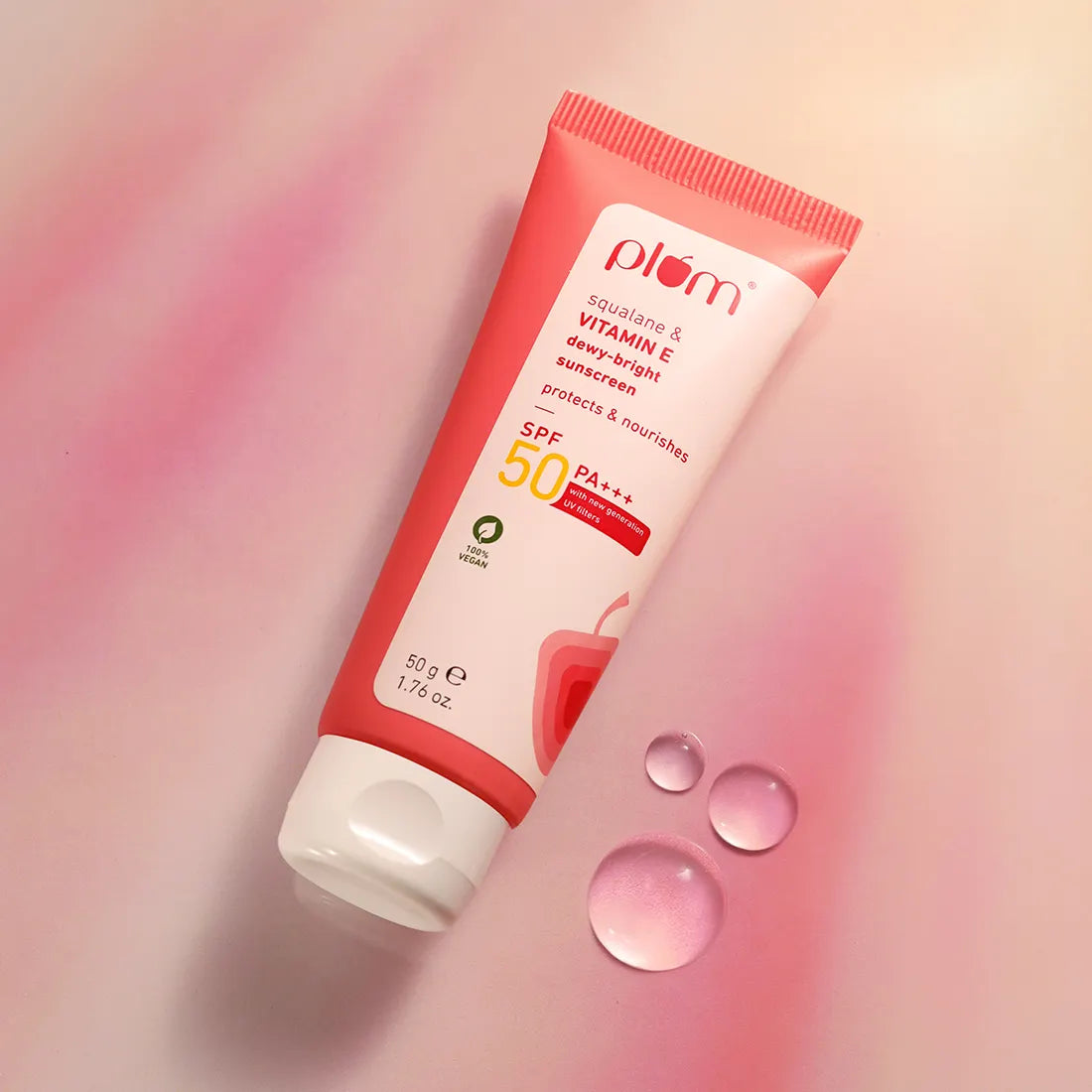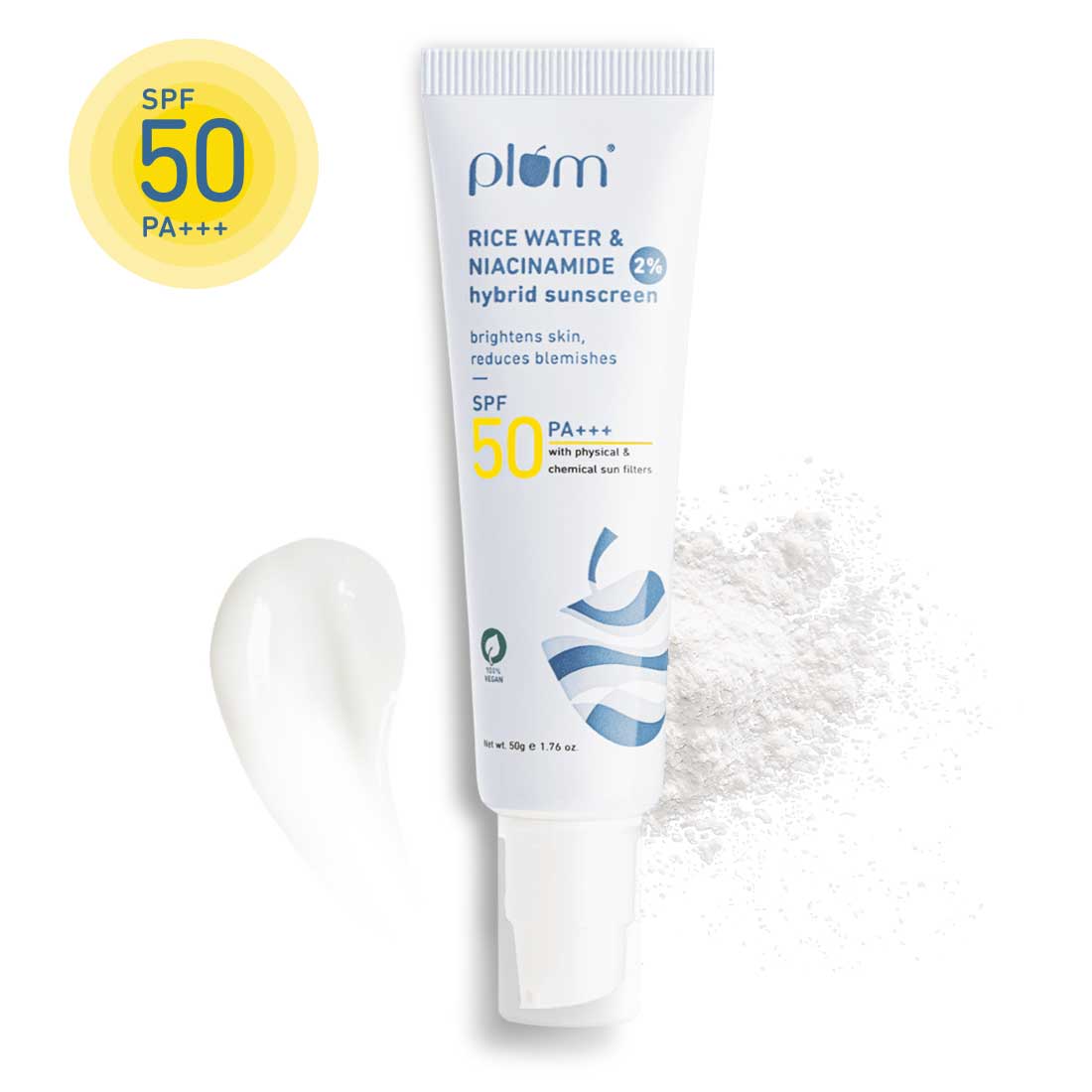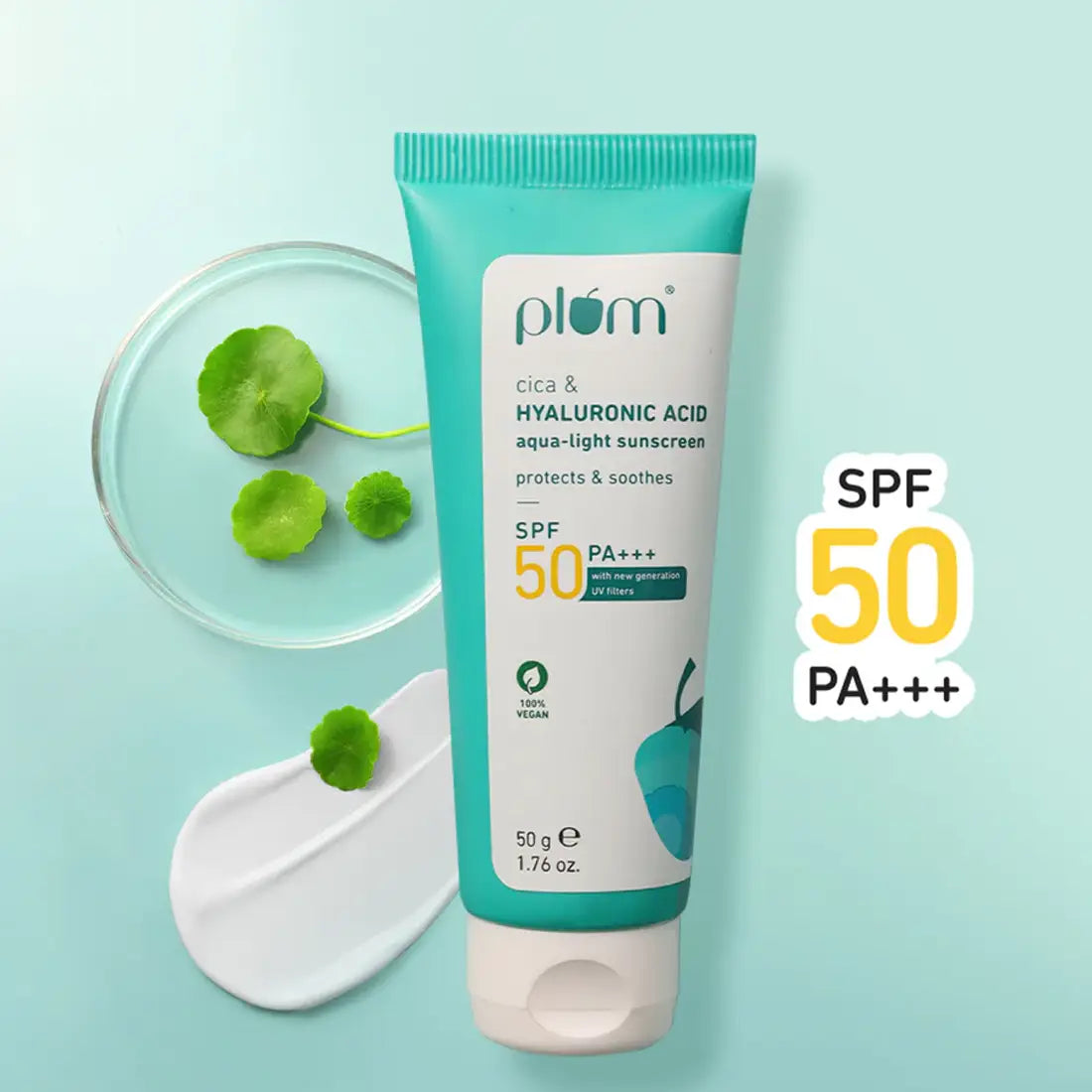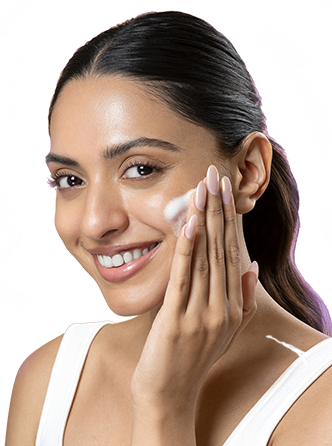
IN THIS ARTICLE
With environmental issues like rising mercury and ozone layer depletion, applying sunscreen every day has become indispensable for your skin’s health. However, sunscreen application could be annoying when it makes your skin sweaty and greasy. However, today, sunscreens are no longer sticky or weigh your skin down. They are aqua-light, leave no white cast, and get absorbed seamlessly into the skin for a nourished feel.
But before you start exploring those, let’s understand why you sweat on sunscreen application. Read on, we've got answers!
So, why do you sweat when you use sun cream?
Honestly, the answer to this question is scientific and logical.
You sweat the same each time it's hot, SPF or no SPF. If the sweat evaporates quickly, you don't feel sweaty. If it doesn't, it makes you feel you're sweating more.
With no cream (or SPF) on your skin, the skin's surface is "rougher" and the sweat evaporates more easily as it's in the form of smaller droplets. When you apply an SPF, the skin's surface smoothens, and the droplets tend to come together and form bigger droplets (think raindrops on glass).
These take a longer time to evaporate than smaller droplets. That's when you feel the sweat running down your face and the "sweatiness" kicks in.
It's the same logic as why you "sweat more" in coastal areas (higher humidity = slower evaporation) than in the interiors of the country (lower humidity = sweat evaporates faster).
Here are a few more questions regarding sunscreen application you might have.
Should you use a cleanser before applying sunscreen?
Yes. It is essential to apply sunscreen on a clean face. Cleanse your face properly with a gentle and mild face wash. Follow up with a moisturizer and then apply sunscreen with an SPF of at least 30.
For oily to combination skin, add an alcohol-free toner to your routine as well.
How do you choose the right sunscreen for your skin?
Picking one sunscreen amidst hundreds of options available can be challenging. Therefore, it is crucial to choose one as per your needs and skin type.
You can choose sunscreen based on:-
- Texture - You can choose between sunscreen lotion, a sunscreen spray, a gel-based sunscreen, or even a matte sunscreen or a sunscreen stick as well.
- SPF - Your sunscreen should have a minimum SPF of 30 which suffices if you remain indoors for most of the day and are not exposed to direct sunlight. However, for prolonged sun exposure, it is best to use sunscreen with an SPF of 50 or more.
- Skin type - If you have normal to dry skin, you can look for a moisturizing and thicker sunscreen cream. On the other hand, for normal, combination, and sensitive skin, oil-free, lightweight sunscreen would benefit you more.
How much sunscreen should you use?
You could be using an incorrect amount of sunscreens, leading to sweating and greasiness. As per the thumb rule, you should apply two finger length worth of sunscreen to your face and neck. However, if that makes your skin greasy, you can use a lesser amount and repeat the process.
Dot the adequate amount of sunscreen on your face and massage it until absorbed. Repeat the process.
For best results, avoid rushing into the sunscreen application. Apply sunscreen at least 15 minutes before you step out to allow it to be absorbed into your skin.
Best sunscreens for aqua-light sun protection
If you are looking for sunscreens that do not make your skin greasy or oily, the following are some lightweight, moisturizing sunscreens.
How do you treat sun damage?
The harsh summer heat can cause sun- damage. Though using sweat-proof sunscreen can prevent adverse effects on your skin, you can use easy home remedies for managing sun damage and getting rid of tanning.
- Use papaya and potato for de-tanning -Papaya and potato are great for de-tanning. Mash a few pieces of papaya and apply it all over your face and neck. Wash off with cool water after 15 minutes. Moreover, the application of raw potato juice can also remove mild tanning.
- Multani Mitti magic- Fuller’s Earth or multani mitti is an effective replacement for expensive clay masks. Mix multani mitti with rose water to form a thick paste and apply it all over your face and neck. Wash off with cool water after 15 minutes. .
- Cucumber as an astringent- Grate a cucumber and apply its juice to your face for instant cooling. You can also rub a slice of chilled cucumber all over your face for the same effect. .
- Opt for alpha arbutin serum - Alpha arbutin serum inhibits melanin production and helps prevent and remove sun tan from your skin. Know more about this de-tan serum here..
FAQs
Q 1. How long does sunscreen last on the face without sweating?
Your sunscreen lasts for about 3-4 hours on your skin. Therefore, you must keep reapplying it to prevent sun damage. However, if you are sweating, reapply it after every 2 hours for maximum protection.
Q 2. Is it okay to sweat after applying sunscreen?
Yes, it is completely natural to sweat after applying sunscreen. With sunscreen application, your skin's surface smoothens, making your sweat form bigger droplets that take longer to evaporate as compared to skin without any cream or SPF. To prevent this, you can opt for a lightweight sunscreen that does not weigh your skin down.





















